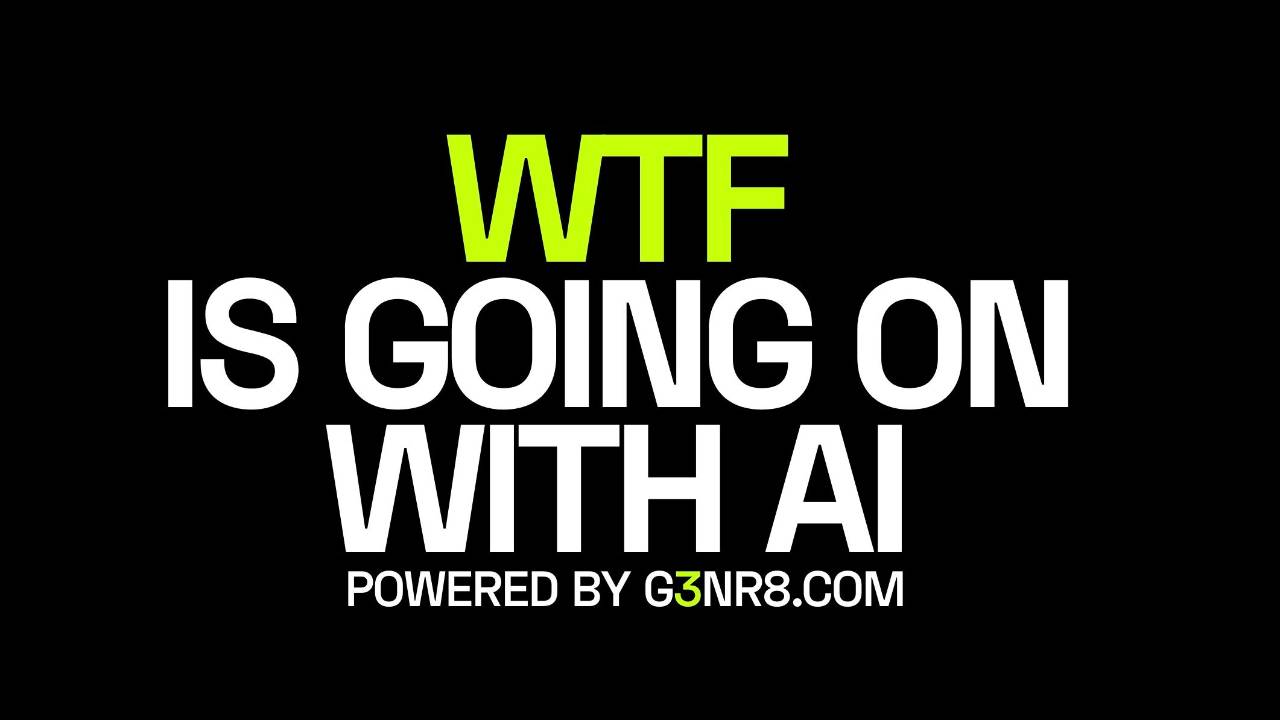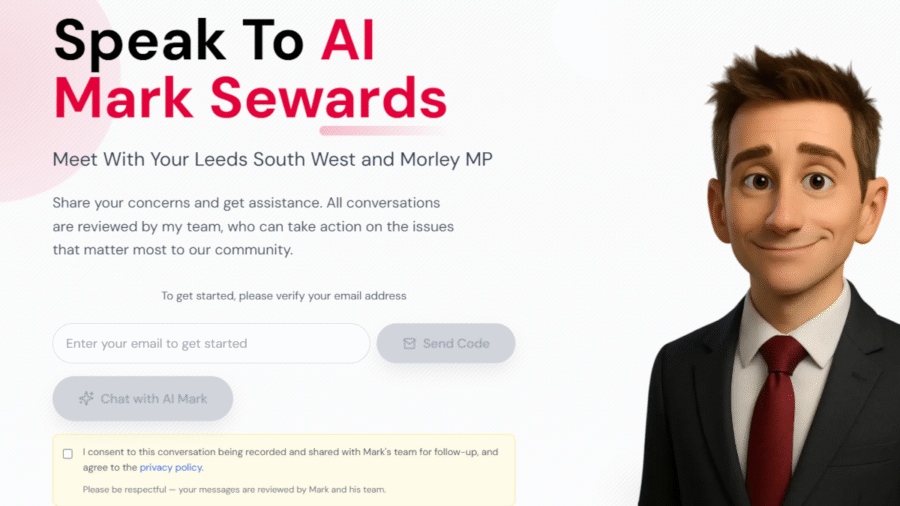
Bad AI: Your AI MP
Aug 17, 2025
AI IS ACCELERATING - GET READY
Let's help you understand the WTF of AI and how it helps YOU and your organisation grow. Ready, set, agent.
This week:
😱 Bad AI: Your AI MP
🔥 Knowledge Bases: ROI Calculator
💭 AI Tools: Claude Memory
✨ AI Models: GPT-5 Update
💡 News, Trends & Insights
BAD AI: MP for AI
 |
What could possibly go wrong? Leeds MP Mark Seward has launched an AI avatar to give his constituents access to him 24/7.
Christ alive, will they ever learn? I hope not.
OK, how bad did it get? Let me quote one user: 'You've done the near impossible and united everyone in thinking this is an awful, lazy, ecologically irresponsible idea'.
Anything else? AI Mark can't understand Leeds accents.
Eh up, that woulda bin reet helpful. Sorry, can you direct that to my SPAC.
And how were the optics? Some* think it's the political tech equivalent of hands, face, space, Barnard Castle, Holiday iPad furore. Not us though, we see no wrongdoing at all, just a fine example of offloading public casework into the bot-void. Commendable work, AI Mark.
Any lessons for AI Mark? Learn Yorkshire, pet.
*Not verified as we went to print.
ROI CALCULATOR: Knowledge Management
|
|
How much time are your employees wasting hunting for internal information?
McKinsey found that companies lose an entire workday per person, every week, just searching for documents and outdated information.
See how much time and money your company could save with an AI Knowledge Base.
Access our 2-minute ROI calculator here.
Here's what smart teams are reclaiming with quicker access to the right information:
✅ 40-60% faster onboarding
✅ 30% fewer internal escalations
✅ Retained knowledge during turnover
✅ Better compliance - SOPs get followed
We build advanced AI knowledge systems for organisations. Get in touch to see how we can save you time and money.
AI Tools: Claude Memory
|
|
Anthropic has released memory for Claude - it can now reference previous user conversations, allowing users to search and summarise past chats for faster context.
Key points:
- On-demand memory search: Lets you find and summarise information from past chats without re-explaining projects every time.
- Available now: Rolled out on all tiers this week - Max, Enterprise and Pro.
- Turn it on: You can enable via Settings → Profile → Search and reference chats.
- Privacy-by-request model: It's not a persistent memory model (e.g. ChatGPT has an always-on memory option), Claude only recalls past work when you explicitly ask it.
What that means for business:
Enables faster project restarts and continuity across devices - though success depends on users remembering to switch it on and actually use it - not a small ask in a world of 180 tabs (just me?).
Wider context:
Anthropic's privacy-first, opt-in recall will appeal to cautious enterprises, trading some convenience for tighter data control. ChatGPT has had memory for quite a while, though it's more on/off without much nuance. Features like this are part of the drive for frontier models to be more useful (and keep us in their ecosystems) in day-to-day work.
Talk to us about implementing AI in your organisation - we work with businesses to train teams, build agents and advanced knowledge bases.
AI MODELS: GPT-5 Update
 |
OpenAI rolled out GPT-5 last week, touting PhD-level reasoning, expanded processing capacity, and smarter tool integration. The reception? Decidedly mixed.
Key points:
- The Launch: GPT‑5 shipped with an expanded context window, new thinking and mini/nano variants, a real‑time router system auto‑switching between fast and deep‑reasoning modes, and improved multimodal and coding abilities.
- Technical leap, unmet expectations: While benchmarks seemed strong, user experience suffered. Lots reported inconsistent responses due to the router, glitchy tone, and removal of legacy models - with GPT‑4o notably missing for non‑Pro users.
- Personality backlash: Users described GPT‑5 as flat and uncreative. OpenAI has since been working to restore older tone options and introduce personality tuning.
What that means for businesses:
GPT-5 has increased context capacity, added reasoning modes, and tool activation. The flip side: you're stuck with OpenAI's routing logic and personality shifts, whether you like them or not - that likely won't affect businesses already using it, though.
Wider context:
This rollout typifies the high-stakes push in transformative AI: delivering advanced features under pressure can expose user experience flaws - and that matters, even as we move towards invisible interfaces. The AI model wars are about capability and cost, but also (some) control of how it works for you.
Got an AI project? Talk to us - we promise to be neither flat nor uncreative.
WHAT'S NEW - News, Insights & Trends
> Are AI ads on the way?
> How hungry is ChatGPT-5
> Perplexity wants to buy Chrome
> Gemini personalisation and privacy
> Meta AI guidelines challenges
FAQ: Why did the Leeds MP's AI avatar receive such negative feedback?
The AI avatar faced criticism for several reasons: it couldn't understand Leeds accents, was perceived as lazy political engagement replacing genuine constituent interaction, and was seen as ecologically irresponsible. Users united in viewing it as an 'awful' idea that distances politicians from real public service.
FAQ: How does Claude's new memory feature work for businesses?
Claude memory allows users to search and summarize past conversations on-demand, available across Pro, Enterprise and Max tiers. Unlike ChatGPT's always-on memory, Claude uses a privacy-first, opt-in model where it only recalls information when explicitly requested, making it suitable for cautious enterprise environments.
FAQ: What went wrong with the GPT-5 launch?
Despite technical improvements like expanded context and reasoning modes, GPT-5 faced user experience issues including inconsistent responses from the auto-router system, personality changes that users described as 'flat and uncreative,' and removal of legacy models like GPT-4o for non-Pro users.
FAQ: How much time do companies waste on information searches?
According to McKinsey research, companies lose an entire workday per person every week just searching for documents and outdated information. This represents a massive productivity drain that AI knowledge bases can address by providing instant access to accurate, current internal information.
FAQ: What benefits do AI knowledge bases provide over traditional systems?
AI knowledge bases deliver 40-60% faster onboarding, 30% fewer internal escalations, better knowledge retention during turnover, and improved compliance as SOPs get followed consistently. They provide immediate, role-tailored answers from secure internal information using RAG technology.
FAQ: How should businesses approach AI model selection amid rapid changes?
Focus on capability, cost, and control when evaluating AI models. While technical benchmarks matter, user experience issues like personality changes and routing logic can impact adoption. Consider privacy models, enterprise features, and how much control you need over AI behavior for your specific use cases.
Stay Ahead with The Ultimate AI Newsletter
Subscribe for unique AI insights and strategies that redefine business and innovation. Plus, get VIP access to a curated selection of "bad AI" - because sometimes, learning what not to do is just as valuable..

